Wife to Mr Milton (Penguin Modern Classics)
£9.60£10.40 (-8%)
Marie Powell is sixteen when her father marries her to the poet John Milton in payment of a debt. They move to a pretty garden-house in London, but she struggles to adjust to her new life. Her husband is high-minded and unyielding, and only makes Marie long for the man she really loves. As Civil War sweeps across England and the King is killed, a battle starts to rage between husband and wife – one that only the powerful can win.
Told through the fictional journals of Milton’s wife, Robert Graves’s sympathetic and sensitive reconstruction of her tragic life is also a convincing, linguistically rich portrait of seventeenth-century England as it is ravaged by war.
Read more
Additional information
| Publisher | Penguin Classics (1 Dec. 2011) |
|---|---|
| Language | English |
| Paperback | 336 pages |
| ISBN-10 | 0141197501 |
| ISBN-13 | 978-0141197500 |
| Dimensions | 12.9 x 3.5 x 19.8 cm |

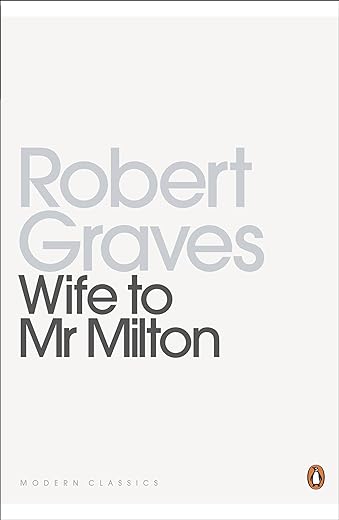
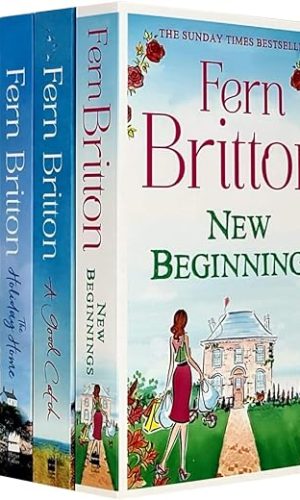

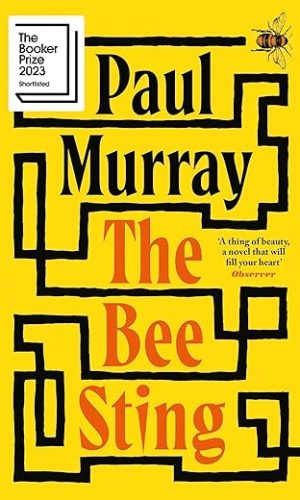

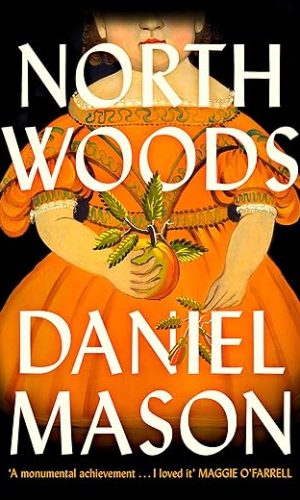
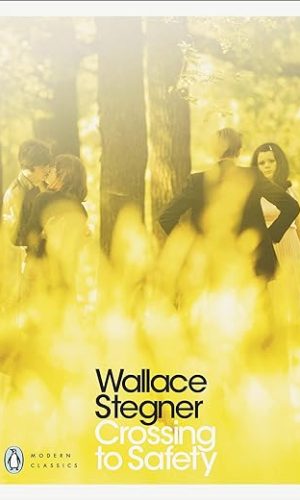
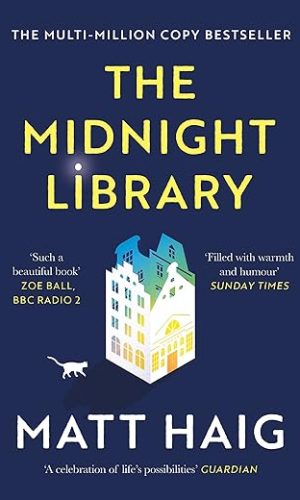
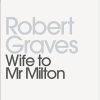
by Merget
It is a rare writer who can attempt the speech of more than three centuries ago and keep you turning the page, neither put off by archaisms nor offended by anachronisms. Robert Graves, in this novel about life through the Civil War, is trying for an easy domestic language that is a natural fit with the pamphlets and poetry that were published at the time.
It is a still rarer male who can write, in the first person, as a woman. I do enjoy Nick Hornby’s novels, but who, reading `How To be Good’ or `Juliet Naked’ isn’t constantly distracted by the fact that, though it’s supposed to be a woman narrating, it’s clearly a bloke writing?
In this ‘memoir’ by a young girl married off in payment of a debt to an incomprehensible man twice her age (and star of his own dream-world) Graves’s mask never slips – so I wonder if it’s not really a mask. I wonder if his experiences in the Great War (which he recounts in ‘Goodbye To All That’) taught him what it’s like to be an intelligent person without power in a situation you couldn’t control even if you did have power.
Graves was a poet, but a post-Great-War poet who didn’t do flowery. Maybe he agreed with Ezra Pound about ‘the horrible dogbiscuit of Milton’s rhetoric’ – the narrator’s elder brother has a good time showing us the secondhand fustian bits of Ode On The Morning Of Christ’s Nativity. I still like Ode On The Morning Of Christ’s Nativity.
Or maybe, having gone to the trenches straight out of school, he was just offended by the idea of a man in his thirties who shut himself up with an appeasing (however fine) sonnet pinned on the outside of his door when London was briefly threatened by the Royalist army.
Whatever, this is a wonderfully imagined account of England descending into Civil War despite most of the people in the country not having any such thing in their heads – and so it is a salutary read.
by sylviarc
Robert Graves is an excellent writer, and writes very believably from the point of view of a young woman in 17th C Britain. Also a good protrait of Milton himself. Very accessible and readable.
by Mrs. Margaret Little
Having been forbidden (at ten years old) to read this book while my mother was devouring it in the nineteen forties, I waited a long time to discover a copy and am grateful, now, to Penguin books and (of course) to Amazon Kindle for finally satisfying my curiosity. My thanks to you both.
My mother, of course, had considered the book very salacious and outspoken – which for those days it must have been, including as it does (though couched, always, in unimpeachably respectable terminology) almost as many accounts of puberty, menstruation, sexual intercourse and childbirth as ever occurred in the novels of D.H.Lawrence.
Books of that kind were rare in the nineteen forties and as we know, they were badly needed. D.H. Lawrence, however, wrote them as fiction. Robert Graves, in WIFE TO MR MILTON, chose to attribute his colourful account of alleged molestations, deceits and cruelties (this really seems the only suitable word) to a real historical character who could not answer back. While writing the book Graves told a friend he had found evidence of these things in Milton’s poetry – which, he added, he had “hated from childhood” – and also in Milton’s polemics about divorce, and his joy and satisfaction in attacking the poet leaps out from every page.
My main problem with the book lies, really, in having loved Milton’s poetry from childhood just about as intensely as Robert Graves hated it, and the personality characteristics that poetry suggests to me are otherwise. Milton probably was obsessional but he could see both sides of an argument, and nobody who reads his sonnets can fail to find compassion and tenderness there. Obviously, the seventeenth century was not the same as ours. Neither its legal system nor its religious beliefs accorded any kind of equality to women. Milton’s first marriage – which this book is about – seems to have been “arranged” in the worst sense and was, moreover, a financial disappointment, and under those circumstances many of his contemporaries might have behaved more badly about it than he did.
A secondary problem in reading WIFE TO MR MILTON – fpr me, anyway – is that it endlessly digresses, through page after page after page, into blow-by-blow descriptions of the English Civil War. The book was published in the middle of World War Two, and perhaps Graves wanted to sound patriotic. Perhaps (though one can’t help doubting it) his original readers WANTED to read these descriptions. I am afraid I skipped most of them.
by John Topham
described as virtually as new. actual condition at best average and rather battered looking
by Itscoldupnorth
The assassination of Milton’s character seems to have been Graves’ main object in writing this book – he creates a domestic monster. He clearly undertook, though, much study and research to write it – even if his depiction of Milton is very biased. Again and again I wondered what were his sources? One might have been the “Curiosities of Puritan Nomenclature”, by Charles W. Bardsley written in 1880 which contains the name Fly-fornication Tanner – a name which Graves uses in chapter 20. The most readable chapter is chapter 23.